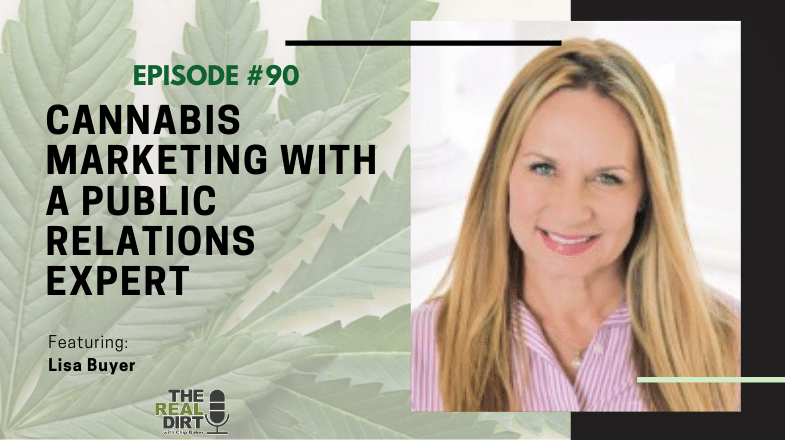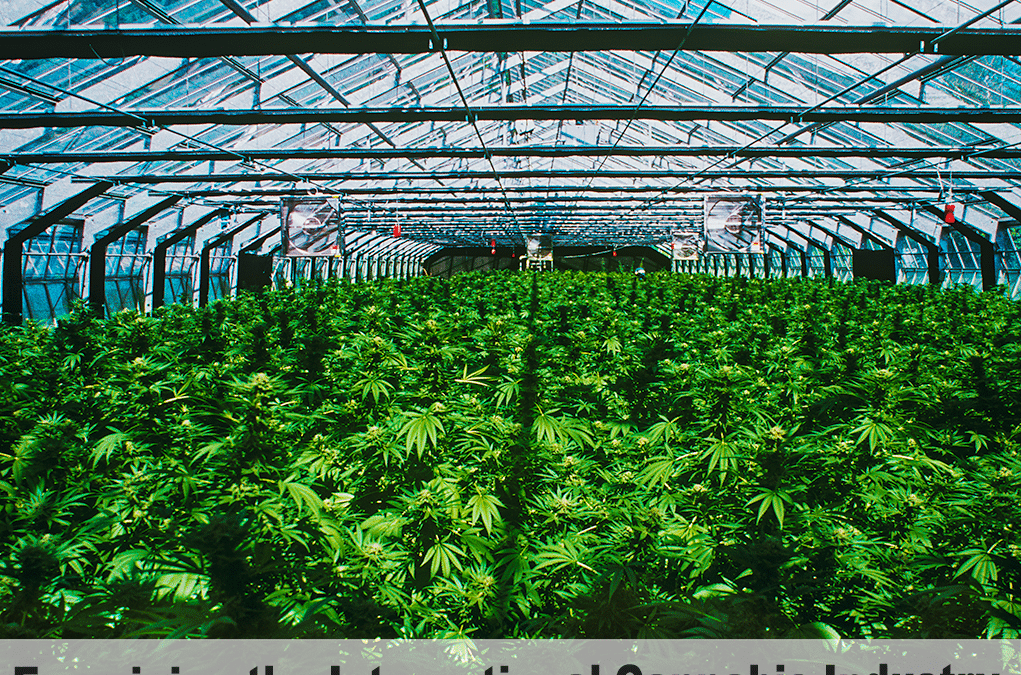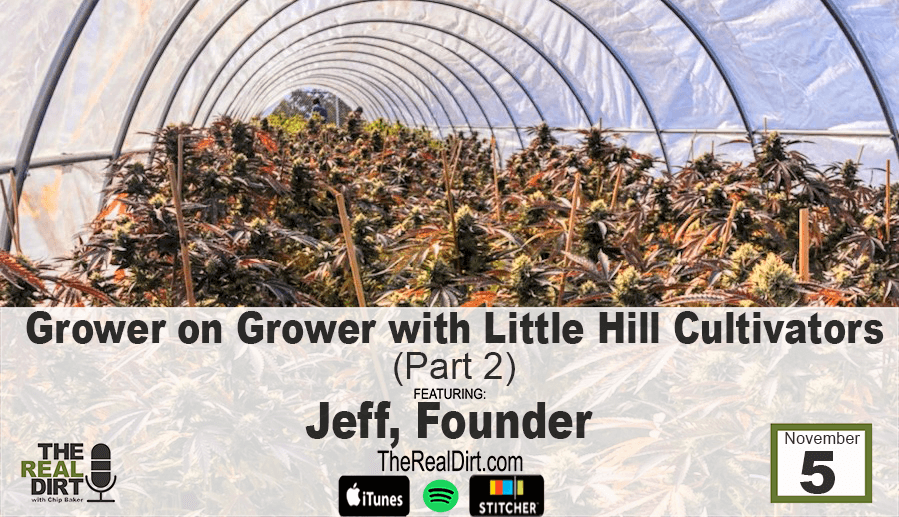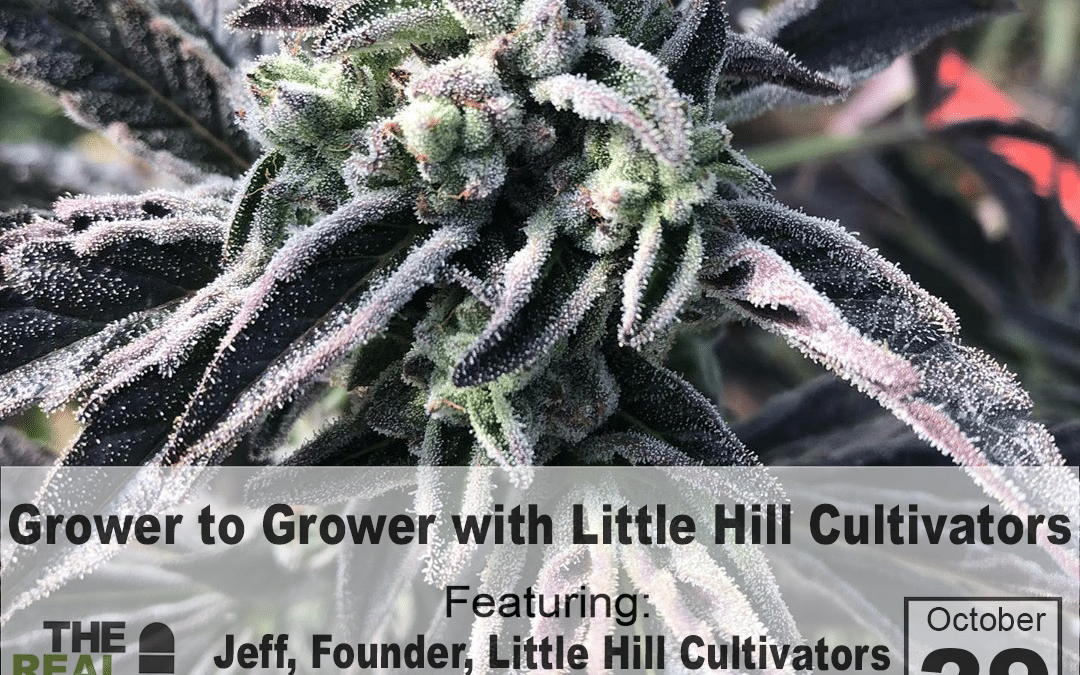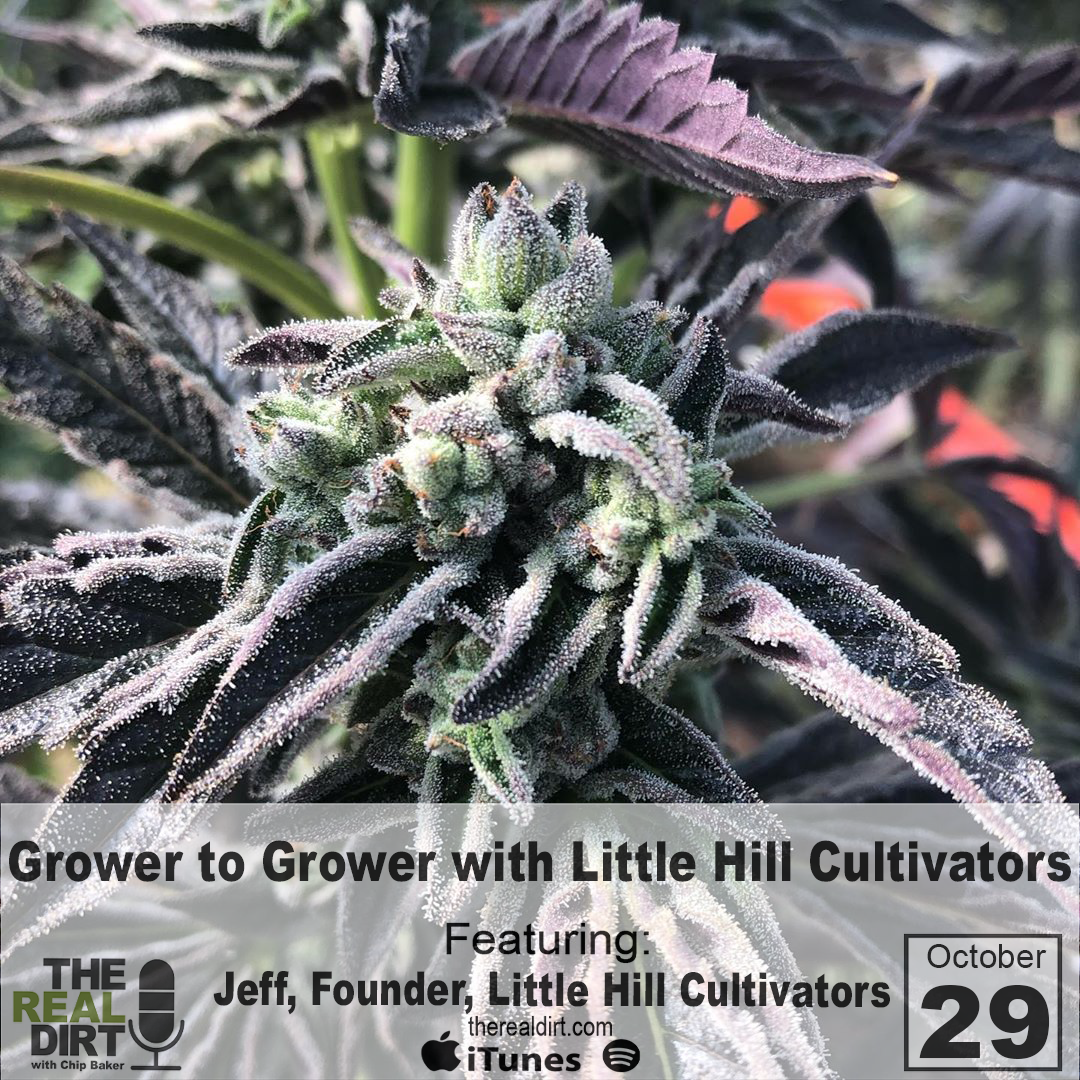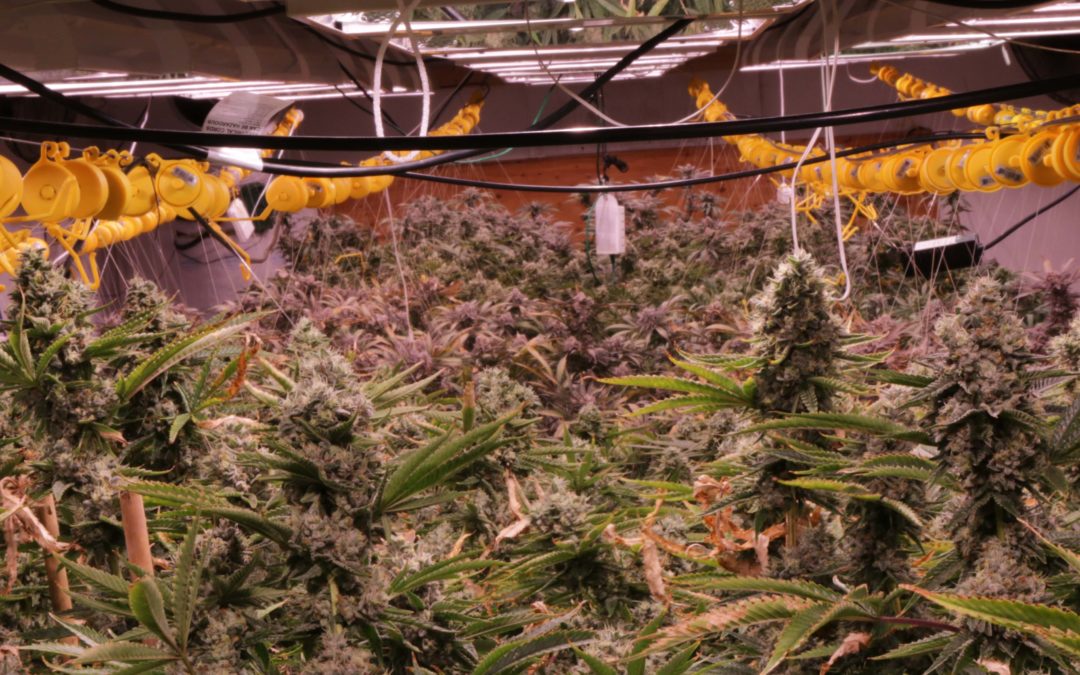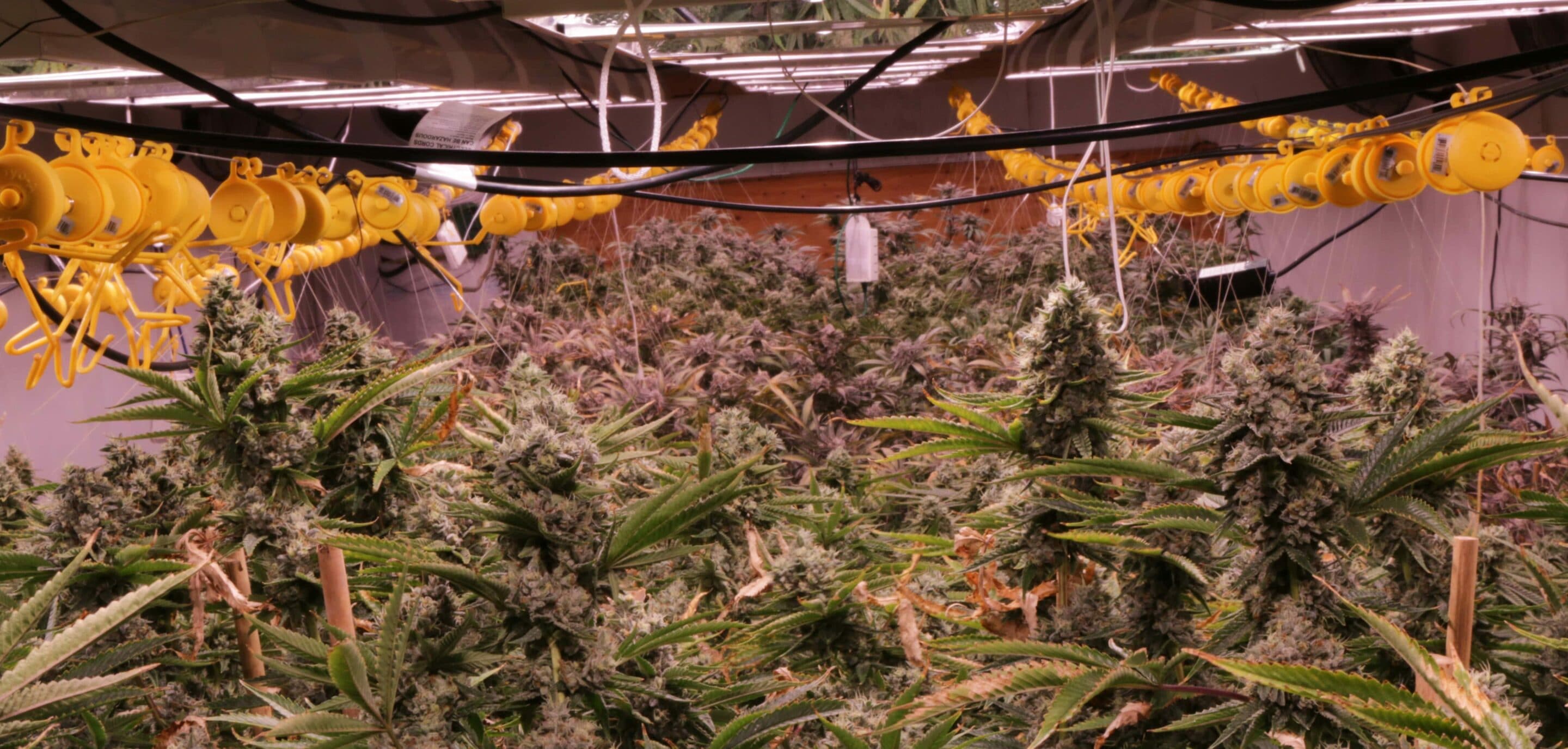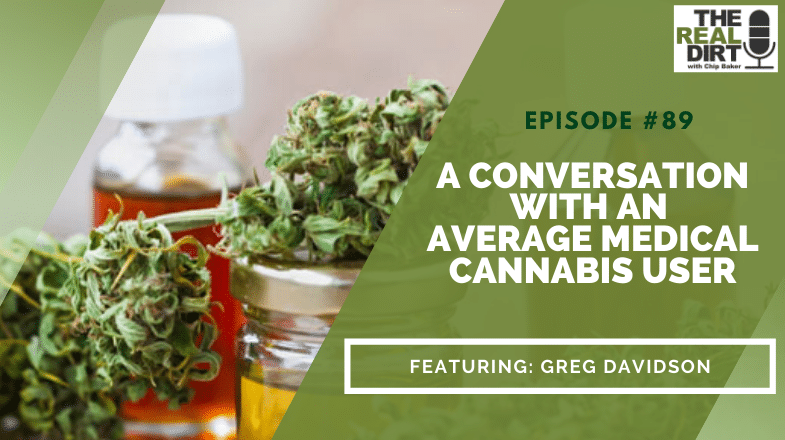
A Conversation with an Average Medical Cannabis User
Podcast: Play in new window | Embed
Subscribe: Google Podcasts | Spotify | iHeartRadio | Stitcher | Email | TuneIn | RSS
 The use of cannabis as medicine has not been rigorously tested due to production and governmental restrictions, resulting in limited clinical research to define the safety and efficacy of using cannabis to treat diseases. Preliminary evidence suggests that cannabis can reduce nausea and vomiting during chemotherapy, improve appetite in people with HIV/AIDS, reduces chronic pain and muscle spasms, and treats severe forms of epilepsy.
The use of cannabis as medicine has not been rigorously tested due to production and governmental restrictions, resulting in limited clinical research to define the safety and efficacy of using cannabis to treat diseases. Preliminary evidence suggests that cannabis can reduce nausea and vomiting during chemotherapy, improve appetite in people with HIV/AIDS, reduces chronic pain and muscle spasms, and treats severe forms of epilepsy.
In today’s episode, Chip’s good friend, Greg Davidson, an average medical cannabis user, shares his insights and experiences on cannabis. He and Chip have smoked out many times “recreationally”.
In 1984 Greg was paralyzed in an automobile accident, and has used medical cannabis almost continuously since to control the spasms in his legs. And just about two years ago, he was diagnosed with bladder cancer and used medical cannabis and CBD to beat cancer.
Stay tune on Greg’s life-changing experience together with the help of his canna-friends who supported him from developing programs to solving growing problems.
There’s nothing like the feeling of a doctor walking in and saying you’ve got cancer. – Greg Davidson
Download The Episode Companion For This Episode
Some Topics We Discussed Include
0:31 – Finding new friends in cannabis
5:17 – Salad joint kinda guy
9:18 – Proposition 64
24:01 – Greg’s first encounter with cannabis
41:42 –Average medical cannabis consumer
43:23 –Message for the regulators, commercial growers, extractors
56:49 –Weather problems
People Mentioned / Resources
Connect with Chip Baker
Transcript
Chip Baker: Once again, you have reached The Real Dirt. In today’s dirt have my good buddy, Greg Davidson. Hey you say Greg.
Greg Davidson: Hey, Chip, how are you doing? Hey listeners of The Real Dirt.
Finding New Friends in Cannabis
Chip Baker: Real Dirty-ans, Greg’s one of my oldest and best friends. I, he, and his wife Elaine, are dear people to us. And the interesting thing about Greg is, in many ways, you’re average medical marijuana patient. He grows a little weed, he smokes a lot of weed, goes to the grow store, goes to the dispensary, he buys vape pens, and I feel like you’re just real average consumer, right? You may be smoke a little bit more average, but I mean you use medical marijuana and medical cannabis. So that’s why I wanted to have you on the show. Plus, we always have really good conversations when we’re on the phone anyway. So you’re a good conversationalist.
Greg Davidson: I love rubbing with each other.
Chip Baker: Yeah, it’s always fun. Yeah. Greg, I met you must have been 2004?
Greg Davidson: Ah, no, I was going to say three. So three or four.
Chip Baker: It was pre, Santa Cruz, for me?
Greg Davidson: You were up in Willow. You were actually the first time I met you, you were a self-proclaimed dirty hippie, and you had pitched attempts at early.
Chip Baker: Oh, okay. It was at one of the cannabis worlds.
Greg Davidson: I actually met you when I was trimming. That’s when I was an itinerant termer.
Chip Baker: Oh, trimmer. Yeah. I was camping out of Charlie’s funny. Well, we met through cannabis world or something. Right, which was an online group. We’ve talked about this in the past. And it was set up as part of a seed bay. So you could talk to breeders and growers about buying cannabis seeds, and then you could go buy them online at this seed auction site.
Greg Davidson: Yeah, it was up a loose affiliation of growers, breeders, kind people and as many of us as could a met once or twice a year up in Northern California.
Chip Baker: You and Charlie were some of my first internet friends, you, Charlie and Shanti Baba Mr. Nice Seeds were awesome offers internet friends.
Greg Davidson: Yeah, back in the day. I can I tell the listeners, my first impression of Chip was I knew that we had a different cat on our hands. Chip had all of his weed and mason jars. Chip was the very first guy to have his weed and make some dirt, that back when we all let it dry out in ziplock bags, and I was like, wow, this guy hightech cuz he’s got mason jars.
Chip Baker: Oh man years probably still smoking Mexican weed back then.
Greg Davidson: No we’re getting from–
Chip Baker: Yeah, no first names!
Greg Davidson: Oh yeah.
Chip Baker: Now he is your medical cannabis supplier, right?
Greg Davidson: Ah, yeah, exactly. I trained him for medical cannabis, that’s how it works.
Chip Baker: Right. So man what puts, what are you smoking on today?
Greg Davidson: I just– Well, I saw that you sched to your part of [inaudible] in progress. I snuck outside real quick and booked to join a gelato. And then I’ve got a couple of canns here. And in my left hand, I’ve got some tandy. In my right hand here, I’ve got what they call Chi up, punch. This is a Rog garden, live resin and I’ve talked about live resin before–
Chip Baker: Yeah, totally love it.
Greg Davidson: Yeah, the taste is right on. What are you smoking?
Salad Joint Kinda Guy
Chip Baker: Man you know I’ve been kind of bored with our weed lately but right now, I’ve been working on a salad that I like, which is a Mimosa and Gilz Nilz. Right. Gilz Nilz is a Swamp Boys Seed and yeah, man. We really like this weed. I mean, I didn’t think I was it– I don’t know, it doesn’t have like, to me like this drawing smell or appearance. It looks good. Don’t get me wrong and it smells great. But like I was totally proved wrong by this weed, Greg. Right.
I immediately saw it, and I was like, oh man, commercial producer. And because it gets big, it grows easy. It doesn’t have any problems. And then like it has an older look because it is Georgia pine and cross the wide. So it’s an older plant, a place or something that they’re not telling us what the Georgia Pine is. Swamp Boys Seeds, actually get them on here and talk about it but they– so I liked smoking this weed, right it’s great outdoor, great greenhouse weed. And we mix that with the Mimosa, which you know, it has a citrus kush you know, taste so yeah I blend them.
Greg Davidson: [inaudible] you’ve been a salad joint kinda guy.
Chip Baker: Yeah, like salads for sure. Yeah, you know, salads are such a good way to, like, tell potential genetic combinations to– right. Something that like could be there or might be there. But yeah, like pure joints too. I’m just kind of bored with our weed right now.
Greg Davidson: I remember back in the day when we were smoking a lot of arcade a train wreck, to get, we would get tired of that creosote taste and you’d mix in a little of that lavender. Oh, that was a nice salad.
Chip Baker: That is a good fond memory, you know, we planted some of those train wreck back crosses, we had, T three, T fours. Just recently, we’ve got a great fino that’s a train wreck, you know, that not carbon copy, but like really, really close. So, yeah, we’re excited for that this show this outdoor season.
Greg Davidson: Alright, so now that we know both know what we’re smoking, mysterious back to. When we first met–
Chip Baker: Yeah, okay.
Greg Davidson: I really liked you right off, back then you were just off your activist days down in Georgia. And that impressed me that impressed me. I really liked that about you. But yeah, at that point, I’ve been using medical marijuana for the spasms in my legs associated with my paralysis, and it’s really, back then your doctors would always ask, you know, are there be forms to fill out? And of course, I was always, no because you didn’t want your doctors to know. If you had a medical condition, you didn’t want your doctors to know. But this is before 1996. So at that point, I’ve been using it for 12 years medicinally.
Preposition 64
Then 96 came along, and it kind of loosened up, got a little bit better. And has gradually, you know, you followed the legislation as close as anybody it’s gotten a little bit better, but it’s still not right. I’m conflicted about proposition 64 pretty much removed the whole medical marijuana scene. I mean, I don’t need to go to the dispensaries rather than the vape cartridges. But I’ve noticed that there’s maybe one place left that will ask if you’ve got a medical card, and I think they’d give some break on the tax maybe. But that’s about it; there’s no compassion and the compassionate care act anymore. It’s all about money.
All the places are really good about either a disabled person or veteran discount, which I’m both– which is nice because they’re pretty much wiped out– your discount pretty much wipes out the excise tax that they’re charging. And the other thing that I really and I talked to Jessica about this is proposition 64 just exploded the one use single-use plastic market so we can just choke this planet even faster on plastic. I mean everything, yeah it just it’s really bad used to be able to go into a dispensary. They break out one of those big extra big mason jars and a set of tongs, and you could pull a bud out, you couldn’t touch them, but you could pull a bud out you could look around, and there’d be nice looking buds in there. Now everything is packaged in a– got my props ready here, Chip. Now we’re making a glass jar or plastic jar like this? You can’t see through it. So you can’t see what you’re getting. And of course, because of the size of the jar, everything is just mids. I wonder– and you know some people might know the answer to this. What happened? Yeah, I know you know some people. What happened to the big buds? Where’d they go?
Chip Baker: What happened to the big buds? Where did they go? I feel a song coming on here. What happened to the big buds, where did they go–
Greg Davidson: Now I go to my dispensary. All I get is bids, Oh show there we’ve just wrote a song.
Chip Baker: Yeah, you used to be my dealer had big buds, the dispensary is getting nothing but meds.
Greg Davidson: What happened? What happened to these top cool? Where’d they go?
Chip Baker: Man, okay, I’ll tell you this dude, is in California and the rest of the country. Yeah, everybody’s buying grams and [inaudible]
right? And the board, the dispensary, or the buyer should have a consistent nugget size in a sack of weed as opposed to like trophy nuggets how we all used to have. Yeah, right. And people talk all the weed used to be better, the weed used to be better, you know, and it’s like, well, man back when like, we all had trophy nuggets, back when that was a thing because you know, the pounds would have small to large nuggets and it was a different story.
Here in Oklahoma and kind of in Colorado a little bit, they shove everything in the bag, right? And Colorado is changing a bit, but here it’s still everything goes in the bag, big nugget, the small nugget, but they’re often cut up dude. [inaudible] are often cut up. It’s better for everybody if they’re– because of the packaging and you know the way people buy it. Because it’s not like potatoes we go and buy this potato that potato three potato four potato you know, and each [inaudible] is bigger, different size, and then you weigh it all and it’s like oh, that’s point nine three pounds, and you pay six bucks or whatever. Right? And we’ve talked about this for a long time too. You know is I would like to go into a dispensary and just buy nugget, buy it by the nugget, buy the gram just like– that 4.6-gram nugget and that 2.8-gram nugget.
Greg Davidson: Right.
Chip Baker: Commercial, commercialism.
Greg Davidson: I’ve had a– and they’ll talk to, you know the bud tenders and, and even the owners of the dispensary will talk to you and tell you that they get and this is just amazing to me. They have people come in every day,
Chip Baker: Every day. Yeah. At Jessica’s dispensary Baker’s Medical. We got people that come in every day about an eighth. Every day and buy two joints every day.
Greg Davidson: Yeah, why not save up your money and come in once a week and buy an ounce I don’t get it.
Chip Baker: Oh, I mean, Well, I’ll tell you what, that’s going to happen more and more in the social interaction. It is definitely going to change. So the people that used to show up and buy an eighth a day–
Greg Davidson: We have this thing at the local grocery store; he mixes a compost tea every week. And then on Sunday, people who are customers can come in and get through their two gallons of compost tea for free and it always turns into a circle out in the back have three or four joints going around, and we call it church
Chip Baker: Church, teachers.
Greg Davidson: In the past couple of weeks, church has been canceled. And on the last week of it everybody got their own joints we didn’t have to ask to join around. This episode’s been forwarded well I’m in the county, I’m in California we’re under stay at home orders.
Chip Baker: So yeah, weird. I see you’ve got your orange jumpsuit on there. [inaudible] log lot now.
Greg Davidson: We got a safety orange in case things go wild.
Chip Baker: Yeah, man.
Greg Davidson: I’ve got enough weed in the freezer from I had a really good year this year. We’re because of Proposition 64. We’re finally able to blow it up in the backyard and with Chip’s help, I gotta say with Chip’s help through a couple of rough patches. I turned out a really nice crop this year.
Chip Baker: Awesome, man.
Greg Davidson: I went out right before the lockdown and bought eight packs of rolling papers, looking at me like I was crazy after accident papers and notes.
Chip Baker: I’ve got a couple cases my shits gonna happen. Now we’re trying to stay really positive doing it all taking it as seriously as we should regardless of like how we might feel about the whole scenario and you know, it is definitely a good time like just take a second back man, you know, actually dude, I’ve been doing podcasts left and right literally I’ve had two others today. I’ve got two tomorrow at three yesterday at a webinar yesterday and then all the rest of the stuff that we decided we wanted to do. But yeah, man, we’re just kicking it down the road and just staying home. You know, this is my new home studio here at the ranch.
Greg Davidson: Yeah. Pretty fancy.
Chip Baker: And I– were just sitting back starting a big garden. Taking care of all of our business. It’s amazing how much work that you can do from a home office and I’ve been home office in for a long time. And I know you do, too. You guys have worked at home for years. But when you use this tool like Zoom, like what we’re using right now or Google Hangouts or, man, it changes everything. Yeah. Man, I think it’s really good time to like, be with your family, and talk to some friends here and there. And, yeah, I enjoy one another’s company.
Greg Davidson: I wanted to be on The Real Dirt since you started it. Yeah–
Chip Baker: Man. We’re on. We’re on today. Well, hey, you know what, I think this is a perfect time to take a break. We’ll sit back we’ll roll up a joint. We’ll have a little break and we’ll come back and we’ll talk about medical cannabis. Right. This is Chip with The Real Dirt, Chip and Greg.
Greg Davidson: Thanks.
Chip Baker: Hey, this is Chip from The Real Dirt, today is like March 25th 2020. And if you’re like most of the country, while you’re kind of concerned about what’s going on in the world. Well, hey, don’t be alarmed. The Real Dirt is a safe place to gather and listen and enjoy this episode and others if you’re interested in more episodes of The Real Dirt, download them at therealdirt.com or on iTunes. Subscribe and listen to all the episodes that we have there. Some are better than others, but I tell you what, there’s something great in every single one. So if you’re sitting back bored just downloads more episodes of The Real Dirt, therealdirt.com.
Chip Baker: So you want those vape pens huh?
Greg Davidson: I do.
Chip Baker: Yeah, the vaping crisis didn’t scare you none man?
Greg Davidson: As long as you’re buying tested, that’s the good thing about 64. That’s one of the good things about 64. Got a little can’t see this but there’s a there’s a sticker right here that is mandated by the state of California to go on these larger dinos right? So no I never had it and with the weather changing I’m able to get outside and get back to smoking flower. In fact we’ve got another prop for y’all here. This is what I do when I’m locked out. Can’t get out these are all joints that are rolled here and see so– time comes and I can just boom out the door.
Chip Baker: Oh, that should go-bag.
Greg Davidson: Yeah. That’s my go-bag.
Chip Baker: Let me see a picture that go-bag again. That was great! That’s awesome. You’ll have to take a picture that send it to me. Yeah, look for Greg Davidson’s go-bag.
Greg Davidson: My go-bag.
Chip Baker: That’s great.
Greg Davidson: I learned from you that you don’t want to have a shortage of [inaudible] No, because, you know, you’ll be cruising along. Life’s cool, and then you get like a paper cut. And you can’t roll– I hate that. Oh, God.
Chip Baker: Fortunately, my wife is pretty good roller.
Greg Davidson: Yeah, she’s decent.
Chip Baker: She’s decent. She’s not great like me.
Greg Davidson: You are so far too much credit. I’ve smoked some of the pregnant guppies that you rolled,
Chip Baker: Hey, sometimes it’s just function, you know.
Greg Davidson: So anyway, we’re gonna try and steer this back–
Greg’s First Encounter with Cannabis
Chip Baker: Oh, this that’s right. This isn’t just like a play conversation. Hey listen Greg, I want to have you on to talk about medical cannabis. When did you get– tell me your cannabis story, when you got first involved with medical cannabis?
Greg Davidson: Oh, man first time I got involved with medical cannabis is first time I got high.
Chip Baker: Well i mean it’s really two different things. I think you’re in medical cannabis user, how did you– Okay, here we go. What was the lightbulb moment when you realize weed was medicine?
Greg Davidson: Ah, okay. February or March of 1985 when I gotten out of the hospital after my back injury. So I first realized cannabis was medicine was in February or March of 1985 after I’d been released from the hospital, and I was living with my dad and stepmom in Sacramento. And had finally gotten to where I was comfortable going out of the house, going out and getting some fresh air, getting some exercise started getting back in touch with old friends and got a sack from one of them. And was being Mr. Sly going out in the garage and rolling up a quick one to take on my exercise journey. Yeah, let me think of like 26 years old, and my dad busts me I get busted by my dad right? And he’s like, you know, you can just roll that up in the house and take it with you. So obviously wasn’t us [inaudible]
Chip Baker: Your mom and dad are like, Just go out there and tell him he can do it in the house?
Greg Davidson: Tell him he can do it in the house. Exactly. So I was smoking, not with the idea of cannabis as medicine. But I noticed that when I would smoke, my the spasms in my legs would really calm down. And I noticed that the more I smoked, the more the spasms in my legs would lead up. Then I thought, you know, maybe I don’t need to take all these liver-killing medicines that the doctors have prescribed for me if I can replace it with what at the time was medicine [inaudible] So I was a medical marijuana patient when you were still running around in three corner pants.
Chip Baker: Dude I was playing weed in 1985.
Greg Davidson: Okay, all right, but you get my point. You get my point. It’s been a long time–
Chip Baker: I was just out of diapers.
Greg Davidson: So I thought, you know, I had to keep it from my doctors back then.
Chip Baker: Right? You can keep are [inaudible]–
Greg Davidson: Yeah, it was a robot–
Chip Baker: You were in the VA at that time. I mean, you were going to VA hospitals–
Greg Davidson: [inaudible] State University of California system. Which has hospitals in various campuses around the state.
Chip Baker: Some may have understood, but you know, it’s not something–
Greg Davidson: I went through different doctors and I know that my first doctor would have been like, good for you, you know, and then he moved on and the next doctor would have been I’m calling the police said oh you just get a vibe, you get a vibe from people. And then I had a doctor for a long long time that I think she heard listen to anything that I said anyway, but I don’t think that she would have been up or down about it.
So then we’re gonna we’re gonna jump forward a long, long time and I got bladder cancer in 2018 was diagnosed with bladder cancer in like February of 2018. And, man, there’s nothing like the feeling of a doctor walking in and saying you’ve got cancer. But at the same time, he was really good doctor and I realized right then in his office that I was gonna beat it. Underneath this shirt, I’ve got a whole slew of tattoos and I think that they– one of them’s the chemical symbol for THC and one’s a chemical symbol for CBD and the doctor is always key on those right away and you know when you know what that is like–
Chip Baker: This guy’s for real.
Greg Davidson: I think they know not to ask their questions anymore. But the guy said to me, amongst other things, he said if you use marijuana, he said use more. He says if you don’t use it now start, and if you do use it, use more.
Chip Baker: I like this guy–
Greg Davidson: So that’s how the just fast forward thing. That’s how the attitude amongst the doctors in the UC system changed over the years. We have mutual friend in Colorado, who does real high grade CBD oil. I got tons of that from him. And talk to Jessica and you about how I developed the three legged stool for my recovery. And it was Western medicine which involves surgery and chemotherapy combined with some other various medicines.
The second leg of the stool was Eastern medicine and a big shout out to Jessica Baker. She was my rock. Right there. She developed a program for me of herbs, proprietary herbs that came from a place in Berkeley. She started; there’s my wife Elaine that made the Reishi mushroom tea and the Chaga root tea that tasted just horrible. And I had a friend can I give a shout out to a friend back in Matthew no last names–
Chip Baker: Matthew no last names
Greg Davidson: You know who you are? He’s a healer, he’s a chiropractor and a Chaga root hunter. It turned out– duty he goes out and he any harvest chaga roots and send me. So that was my– they know each other. So that was my second leg of the stool, and then the third leg of the stool was all about cannabis it’s all about cannabis, man. I smoked —
Chip Baker: Propping up on weed.
Greg Davidson: I smoked, I ate, I use drops. I use poultice I think I used everything except those [inaudible] shouldn’t go–
Chip Baker: Oh, man, you know when you really got to get up in there right?
Greg Davidson: Any [inaudible] method that you could? And I really think that those three things Western medicine, Eastern medicine and then the power of medical marijuana.
Chip Baker: So now you can bring it up to anyone. You can talk about that you use medical marijuana to anyone now.
Greg Davidson: Yeah, right. In fact this past year when I knew that I was going to grow big. I went around to all the neighbors and I you know, fest up tonight. A year–
Chip Baker: For the past you were nervous about it.
I went from door to door at around the neighbors and told them I’m gonna be growing. – Greg Davidson
Greg Davidson: I was I’d be very careful. Although we have really good neighbors and we’ve known them for a long time. You know you don’t want to offend anybody. You don’t know their feelings about it. And so I went from door to door at around the neighbors and told them I’m gonna be growing. And I said, and they were all fine with it. They were all great with it. And I said, by the way, did you know that I’d been growing outlaw style for years, none of them had a clue. So yeah, I was able to grow my own medicine this year, and the state makes it really easy. There’s real good nursery that has high quality clones. Chip knows who I’m talking about. I used a nutrient line that was a lot harder than it needed to be. But I think it was worth it and I grew and grew in one [inaudible]–

Chip Baker: Oregon zone nectar the gods that are what she is right?
Greg Davidson: Yeah. Nectar for the gods. Yeah, it was like an 11 [inaudible]
Chip Baker: Great product, too complicated for–
Greg Davidson: Yeah, I had to contact you a couple of times and say, why am I giving my plants carbon?
Chip Baker: There’s only instruction just follow it.
Greg Davidson: Yeah.
Chip Baker: Now they got a good product, man. You know, it’s they do have 14 pieces to the puzzle though.
Greg Davidson: I turned out some really, really nice medical marijuana and I’m sad I mean if the you know if this is a zombie apocalypse, man I’m good, I got jars sealed up out there. Do you remember the legendary APK we call it All their Point Kush?
Chip Baker: I do remember it but but I was never that– I wasn’t that into that one, but it just never crossed my path the same way as it did you guys, I remember it?
Greg Davidson: I broke out a jar that has been sealed up for 15 years.
Chip Baker: No way! Holy shit.
Greg Davidson: And I smoked it with our mutual friend
Chip Baker: In the freezer, had you forgotten about it or purposely it was back there?
Greg Davidson: I totally knew and I knew at some– I was gonna smoke with our friend and own the seed bank. Can I give him a shout out?
Chip Baker: Absolutely.
Greg Davidson: Oh man. Oh cool!
Chip Baker: Who’s our friend? That into seed bank?
Greg Davidson: My best friend–
Chip Baker: Oh Sha, 707 Seeds yeah totally got some of his 707 kush going on down here in the 405–
Greg Davidson: So he and I’ve been friends for a long time. He actually got me the cutting of that all good point kush. So I broke it open, roll the joint smok it with him, and then told him what it was, and showed him the jar. It was it had lost a little bit of he used to have a really nice spicy smell. Now just kind of had a flat smell, but as far as taste and getting you high, it had lost nothing, and it been in my freezer for 15 years.
Chip Baker: Well that’s awesome. We smoke some a Fletcher’s Malawi and oh five haze recently though, that we had, it was in the back of the frigerator for 18 months maybe more. And it lost his color a little bit. Didn’t have an initial smell but you broke it open and there was a smell and it smoked just fine.
Greg Davidson: Have you sealed it and then put it in–
Chip Baker: Just in a jar, dried, right? tight. I am putting the one cooler.
Greg Davidson: Buy yourselves a vacuum sealer. Good.
Chip Baker: So I’ve got a vacuum sealer, there’s just you know, like, we got too much weed. We just put this in here.
Greg Davidson: And we don’t have– That was a funny experience. So that’s what I did with this year’s model. I have a nice mix of SFV OGs, Chip knows I’m one of those fuel oil, kind of guys. And then with Jessica’s help, I was able to develop the terpene profile.
Chip Baker: Yeah, what’s your what’s your ter[inaudible]?
Greg Davidson: Man, I got to have the limonene,a little of that. You know what works out strain wise for me and money because it’s one I’ve always loved is Sour Diesel. And then the– anything like that [inaudible] the real dank OG. My favorite OG is Tahoe OG, I couldn’t find that but it I grew some really nice SFV OG. And my garden star was a replacement plant. I had a Venom OG, that was not working. And I sent my boy Chip a picture of it. And he says pull it up. It was pretty late in the season, but I was able to get the same nursery. Some [inaudible] And man–
Chip Baker: The great. Yeah.
Greg Davidson: It was great. It was super easy to grow. Super easy to trim and just chunky rock hard buds that taste of you can taste the cookie influence but also, you can get that limonene but, man, I wish we could get a hold of some genius. Remember?
Chip Baker: Oh, you know what we actually just planted a seed run of the Apollo 11, I think looking for that genius fino and man I think we came close. I think we came close man. I think you’d be impressed. Yeah some my favorite weed genius. Oh my god. Just great.
Greg Davidson: Yeah.
Chip Baker: It’s great. So man, let me ask you a couple medical marijuana questions.
Greg Davidson: All right, yo.
Average Medical Cannabis Consumer
Chip Baker: You are an average consumer, if you could say anything to the dispensaries what it was. If you have all the dispensaries in the country listening to you because you very well could. What do you want to tell them?
Greg Davidson: Wow!
Chip Baker: As an average medical cannabis consumer.
Greg Davidson: This is going to sound harsh.
Chip Baker: It’s good criticism–
Greg Davidson: [inaudible] with the bait and switch. Yeah, it’s bad problem, too bad problem. No show.
Bait and switch work this way, and they put a bud into a clear lucite jar that has a magnifying glass built into the lid. And the bud is just dank. Yeah, frosty. Perfect, you can tell it’s got a perfect mixture to it. So you buy an eight of that, and you bring it home, and it’s not even the same weed. It’s sad but true and one a would-be, man we’ve got to cut down on the plastic.
Chip Baker: How is it works? Have to cut down the plastic.
Greg Davidson: Yeah, yeah.
Message for the Regulators, Commercial Growers, Extractors
Chip Baker: I was gonna ask you what you would say to the legislators if they were listening to this and the regulators because they are they’re out there, man.
Greg Davidson: Oh, that’s easy one, I don’t even have to think on that one, legalize it.
Chip Baker: Well, one of the things is less plastic. You just told me that.
Greg Davidson: Yeah, definitely require less plastic. I get what you’re trying to do. But people are responsible, patients are responsible enough and you know, I hesitate to use the word patient anymore. Let’s just say users, users are reliable enough that you can put it in a paper bag and staple it closed. You know, we don’t need everything that we’re buying in one plastic or glass jar. And then put it inside of I meant to have one of those ready, but you know what? single black ziplock–
Chip Baker: Exit container, a secure exit container.
Greg Davidson: Thank you. I knew they had a name. The exit container, what can you do with those afterward?
Chip Baker: Now, the waste is tremendous.
Greg Davidson: Yeah. And now our recycling, our recycling won’t accept that kind of stuff.
Chip Baker: All right. So dispensary owners legislation, what do you want to say to the commercial growers, the people that are growing this stuff?

Greg Davidson: Learn how to cure your cannabis properly. Man, I hate to keep banging in your drum, because your heads are not going to fit in the studio. But Chip taught me more good cannabis gets ruined and the curing process that any other point. It’s not easy to grow great weed, but it’s not super hard. You can trim it. You can dry it and you know the merits of wet trimming versus dry trimming. I mean I’m a dry trimmer, I always have been.

But then there’s that last step that brings out to taste brings out the flavor profile. And that’s curing, so you growers out there, I know you’re trying to get your product to market as fast as you can you know you’ve gone through all the hoops I know what they all are and then you want to get your product to the dispensary. But take a little bit extra time and give it a nice cure. Chip told me in Colorado, and I didn’t know this Colorado is a super dry state super hard to dry and get a proper cure. So here in California where we’ve got the proper climate court do it. Next question, please?
Chip Baker: Next question. All right, well, extractors there’s the next thing. As a medical cannabis consumer, what do you have to say to the extractors? Because this is perfect information for all of these guys, what is my average consumer?
Greg Davidson: I see a drop off in the wax and resin and that kind of product and a better job being done with these things. And I know it’s hard. Not everybody can do it, but if you can do it, think about becoming a live resin extractor. Adjust the flavor, you don’t have to add terpenes back end because they’re there. So ask me long question Chip so I can hit this, waving it around like–
Chip Baker: Man now I think those are I got what I want and really you know, the grower the extractor, the distributor, the legislator, I mean we you know talk about, how you can talk about it now. You snuck talk about it you talk to your neighbors about it you know make how regulations actually really made you feel better about it. And there’s– we’ve both talked about this though there’s it, man it’s harder to get great, great product.
Greg Davidson: Yeah it really is — It’s easy to get good extracts.
Chip Baker: Yes, it’s so easy for somebody to make an SOP of an extract. It’s really easy to be like, Oh, if you treat this weed this way and you put in a recipe with growing ganjas not exactly the same every time.
Greg Davidson: It’s so hard to do it right. To do it right is– one thing you told me a Chip seems to have enjoyed smoking my cannabis over the years.
Chip Baker: I’ve smoked as much of Greg’s weed as I can.
Greg Davidson: Quite a bit I gotta say, which is quite a bit. One thing you always said and I appreciated you saying this was because of my situation, I’m able to be with my plants every day and give them love and that makes up for a lot of things.
Chip Baker: Oh yeah, absolutely you don’t need a bunch of care to grow weed. I mean of course no I love it don’t get me wrong, but it doesn’t take much. As long as you got a pot, and some soil and a little bit of fertilizer, and some seed or a clone like water, right?
Greg Davidson: There are so many seed companies out there now. Like Fletcher’s just turn it out some crazy good stuff.
Chip Baker: I mean, he’s hands down one of the top breeders in the world. I’m proud to know him call him, bro.
Greg Davidson: Me too. I knew him.
Chip Baker: I knew him when he was like 15 [inaudible] to be it as the parties we were at.
Greg Davidson: Right, you’d look over there and you’d be like, Who’s that kid?
Chip Baker: I never can tell how old anybody–
Greg Davidson: Where did he get that crazy good weed sitting in front of.
Chip Baker: Yeah, man. He’s got he’s got a fucking $60,000 car too, so he must be 21. Right? He wouldn’t even old enough to drive. Somebody else drove him–
Greg Davidson: We know a lot of characters back in our day, Eddie, remember Eddie.
Chip Baker: Yeah. He just came up yesterday in conversation Eddie Lap. I’d love to get Eddie Lap on the show, man. Oh, my God. He’s got some of the best stories ever.
Greg Davidson: Yeah, I said, we had a friend that this is going back to our CWGA days. That had a party for all of us at the end of the year. And that’s where I met Jessica, for the first time I was walking, for you were there, and there was this girl just tearing up foosball table and you said, that’s Jessica. And since the four of us my wife Elaine, Chip and Jessica and I have been become really good friends, we’ve got some great stories. Chip eating pecan pie with chopsticks. Still makes us laugh. We’d been up there for the weekend, and all the silverware was gone. But there was still and Chip showed us his chopsticks.
Chip Baker: I got mad chopsticks– you know, that’s an off the grid living on the road item like their chopsticks. That’s how I’ve got such a good usage of them [inaudible] off the grid, use chopsticks–
Greg Davidson: And the rest of us did not go without entertainment.
Chip Baker: Good time. Good times. Oh, so, man, what kind of weed you’re looking to plant this next year?
Greg Davidson: You know I’m interested in doing some Affies. I listened to your show about affies and I did put in a lot of time last year and I don’t want to put in as much time this year. So you’ve kind of sold me your show kind of sold me on doing some feminized Affies. In fact, we meet we need to talk about seed source.
Chip Baker: Man, I tell you, you need to contact Caleb over CSI, man. He’s got all the genetic that perfect for short, slow growers. A lot of that purple and that stuff you know, this basis of a lot of his crosses in the past and then he’s got some straight Afghanistan and yeah, I think he’s a great person to talk to you. Great.
Greg Davidson: Cool. Well at some point is going to pass and we want to be able to go on some day trips, maybe some overnight trips, this coming year, when–
Chip Baker: What will less solve your problem? What was your, you had to water them?
Greg Davidson: Well, I can just like count backward from a certain date and know when to plant them, instead of going getting some clones and worrying from I’ve got a lot of the infrastructure and now I’m looking at my pots that are out there.
Chip Baker: What keeps you being home so much? Is it because they need to be watered?
Greg Davidson: Yeah, they need to be watered and then mix it up nutrients so there’s no way I’m going to use the same new track and
Chip Baker: I can solve all those problems for you. Yeah.
Greg Davidson: Okay, yeah.
Chip Baker: Your problems are simply solved. One is use some sort of pre-mixed organic nutrient or make your own that you add to the soil that you’re using. There’s coming recipes we could talk about, and then put in a simple drip system that just comes off your water hose and it’s just water. You occasionally want to feed it with something, then make up some jugs and nutrients and feed your plants.
Greg Davidson: That was my– this year because we’re prone to some really, where I live is at the upper end of the San Joaquin beginning–
Chip Baker: Do you know exactly how much your plants are drinking with water I bet
Greg Davidson: Oh, and there was a point where the ones in the half wind girls where they were getting 10 gallons of water a day. We had a freakish–
Chip Baker: Simple drip system. We can make all that happen.
Greg Davidson: Yeah, we had a freakish heatwave that we see temperatures in the hundred and teams. Day after day. And it was–
Chip Baker: We had that here last year too. Yeah.
Greg Davidson: Yeah, I know you have 90–
Chip Baker: It was 91 degrees here yesterday.
Wheather Problems
Greg Davidson: I know you weather problems. You got a late start and I saw your post today about bugs.
Chip Baker: Have to be honest [inaudible]
Greg Davidson: Here, cabbage loopers. I guess I need to put some cabbage in, because they have a problem with cabbage looper bugs.
Chip Baker: Yeah, a companion planting can help you guys for sure. And you know, there are some simple pheromone boxes to draw the bugs there, the cabbage loopers they’re actually, I believe they live in the soil. They come out the soil, right. So you could like [inaudible] somehow–
Greg Davidson: I think the bug that you– the worm that you posted today, that might have been a cabbage looper. They come on a small white mark like maybe the size of a nickel you’ll see these white mods flying around your grow. And then a few days later, the classic sign a few brown leaves on the outside and you don’t pull on them. And the whole top of the bud comes off.
Chip Baker: Yeah, right. They’re ugly, there’s a few different versions we have down here. We’ve got the tomato hookworm, we’ve got the quote-unquote, garden worm. But they’re they’re fairly large. Yeah, you can burn the ground, and it burns off any of those. Any of them that are in the ground over the winter.
Greg Davidson: Yeah.
Chip Baker: Right. And then pheromone boxes attract the moths. So then they catch the moths in the pheromone boxes instead of on your buds. Then you gotta pick that shit out and look for it daily.
Greg Davidson: But it’s something that you know, I wish more people, I don’t want to put the dispensaries out of business that’s not m– But I’d like to see more people growing their own. I’d like to see more people at the grow stores– Every grow store owner that I’ve ever known is willing to just talk with you for as long as it takes you know–
Chip Baker: We’re good at that
Greg Davidson: Yeah, they are, all you guys. I mean Chip our friendship goes so deep that I can call him with a quote-unquote emergency in the crop and he’ll get back to me within six hours and has solved everyone.
Chip Baker: You’re my six hour list.
Greg Davidson: Six hour call back. But yeah, it is something that I would like to see the legislators who are listening to your show and may come in the future I’d like to see them work towards a uniform thing. Because even here in California it’s not very uniformed. You know, it changes from town to town.
Chip Baker: [inaudible] Oklahoma State law. Right state laws so the individual countless cities can’t manipulate it quite as much as other places like California. Well, Greg, I have appreciated this little conversation we had, man. To me it felt like almost any other phone call we’ve had.
Greg Davidson: It’s gone a little longer than our usual phone call.
Chip Baker: Maybe a little bit. We talk about 40 minutes, I think. But yeah, thanks for having me having me on your show.
Greg Davidson: Thanks for having me on your show.
Chip Baker: Thanks for having me on your show. This has been another fine, no wasted hour of your time by listening to The Real Dirt. My name is Chip Baker and this has been The Real Dirt.
Subscribe & Review
Thank you for tuning in to this episode of The Real Dirt. Don’t miss an episode, click here to subscribe on iTunes and let me know what you love about this show.
Podcast: Play in new window | Embed
Subscribe: Google Podcasts | Spotify | iHeartRadio | Stitcher | Email | TuneIn | RSS

